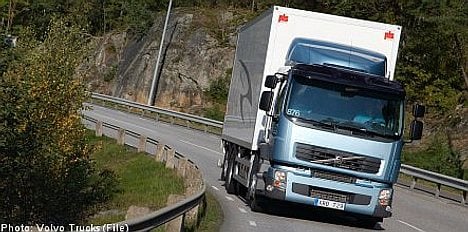Last year, Volvo saw its net profits soar to 10.9 billion kronor ($1.69 billion), up from a loss of 14.7 billion kronor in 2009, on sales up 21 percent to 264.7 billion kronor.
The company, which owns the Volvo Trucks, Renault Trucks and Mack brands, saw the number of trucks sold during the year balloon 41 percent to 179,989 vehicles, it said in its earnings statement.
For the last three months of the year, Volvo saw its net profit jump to 3.23 billion kronor from a loss of two billion kronor in the last quarter of 2009, on sales up 28 percent at 73.4 billion kronor.
Its truck orders meanwhile skyrocketed 60 percent in the fourth quarter, while deliveries soared 49 percent.
The company’s quarterly results nonetheless slightly missed the expectations of analysts polled by the Dow Jones Newswires, who had predicted a net profit of 3.87 billion kronor on sales of 74.4 billion.
Volvo’s chief executive, Leif Johansson, who is set to step down in the middle of the year, said the group had been affected by “production disturbances impacting productivity when the entire industrial system, including our subcontractors, raised its manufacturing pace to a higher level.”
Following the news, Volvo saw its stock price rise 1.31 percent to 108.30 kronor in late morning trading.
For 2011, the Swedish company said it expected to see even greater demand for its trucks in Europe and especially the United States, but cautioned demand in Japan would remain weak.
After several quarters deep in the red during the 2008-2009 financial crisis, when it laid off nearly 20,000 employees, Volvo returned to profit in the first quarter of 2010, boosted mainly by its activities in Asia and South America.
Volvo, whose truck business is second only to Daimler globally, is no longer linked to the Volvo Cars unit, which it sold in 1999 to Ford, which in turn sold it to Chinese Geely last year.



 Please whitelist us to continue reading.
Please whitelist us to continue reading.
Member comments